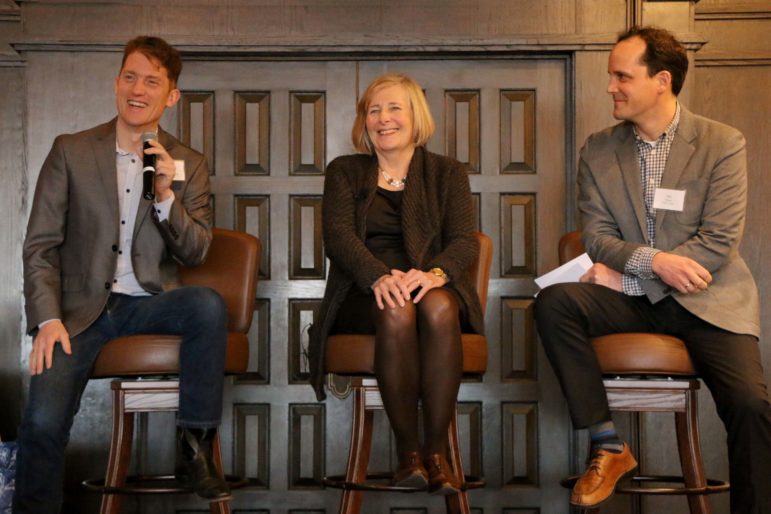 Fresh Energy’s Built for the Future Power Pairing event brought together two leaders with unique perspectives on high efficiency homes: Sue Haigh, president and CEO of Twin Cities Habitat for Humanity, and Jacob Corvidae, building manager at Rocky Mountain Institute.
Fresh Energy’s Built for the Future Power Pairing event brought together two leaders with unique perspectives on high efficiency homes: Sue Haigh, president and CEO of Twin Cities Habitat for Humanity, and Jacob Corvidae, building manager at Rocky Mountain Institute.
The overall message was clear. Highly efficient buildings are possible now, affordable, and good for people, their health, and their wallets. Residents benefit from good indoor air quality and low energy bills, and communities can embrace better buildings to attract economic growth and advance carbon reduction goals.
- Sue described how Twin Cities Habitat for Humanity is already building highly efficient homes at cost. Which brings up a question- if a local nonprofit is able to build highly efficient homes at cost, shouldn’t the rest of us?
- Jacob gave a great overview of some of the building efficiency pilot programs that Rocky Mountain Institute is currently looking into across the county, and the possibility of bringing these solutions to Minnesota.
- Mayor Chris Coleman started off the event by highlighting the City of Saint Paul’s commitment and current efforts to support energy efficiency in the housing market, including at the soon-to-be developed Ford site.
With our largest audience to date, the January 27, 2017 Built for the Future event was also the official kickoff of Fresh Energy’s 25th anniversary of our incorporation in 1992. Read more about what to expect during our 25th anniversary year. The focus on energy efficient homes was fitting, since one of Fresh Energy’s earliest victories was helping to pass legislation that required Minnesota’s building code to be the strongest of any jurisdiction, which resulted in what was then nation-leading energy codes.
Twenty-five year later, Fresh Energy is still working as hard as ever to shape investments and best practices that increase the efficiency of our buildings and create win-win solutions for owners, renters, and our economy. Our current priorities include building energy codes, market-driven demand for efficient buildings, utility efficiency policy, and data access. Check out our latest blog on the topic here.
